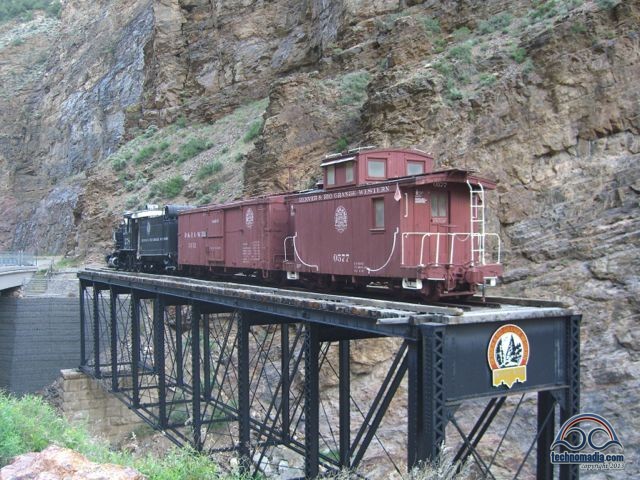
<— Read Chapter 12: Healthcare and Staying Healthy on the RoadRead Chapter 14: Feeling Safe while Traveling Full Time —>
One of the advantages of a stationary life, is the accumulation of local knowledge about the things and services around you.
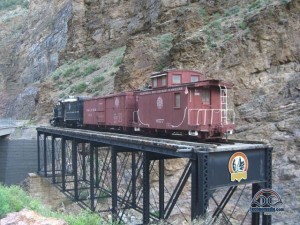 You know where your favorite dentist, doctor, hair dresser, grocery stores, restaurants, vets, bank branches and mechanics are.
You know where your favorite dentist, doctor, hair dresser, grocery stores, restaurants, vets, bank branches and mechanics are.
You know what produce is in season in August, and where to take an out of town guest for a great meal.
There’s a certain sense of security in knowing that when you need a service or product — you know where to head.
If you’re considering a mobile lifestyle, it’s probably a change of pace, changing scenery, exploring new locations and interacting with new people that is calling you to the road. But leaving behind the continuity security blanket of routine daily living may seem a bit overwhelming.
Living on the road equates to always having to find a new service provider at every new location you find yourself in, and always adapting to local variations in the way daily things are done. For some, this is part of the adventure – and for others, it may be too much to be sustainable long term.
Never Fear
However, in practice, it’s really not as big of a leap as it might seem at first.
Sure, you may be giving up your favorite hair dresser or dental hygienists as your regular provider in the process.. but there are many talented and qualified providers all over the place. It’s just a matter of being able to find them, being adaptable, and trusting a bit in serendipity to help you find what you need when you need it.
In the past 6+ years of us being on the road — we’ve navigated a wide variety of services. Everything from every day needs to acquiring urgent care. Vet appointments, dentists, grocery shopping, a soak in a hot tub and maintenance chores. We have been delighted many times by having a need, and discovering the person who happens to be standing next to us has the skill set or resources to help.
Reduce Reliance on In Person Services
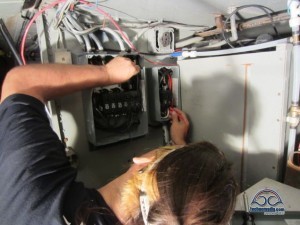
The first step is to consider what things in your life can be switched to not needing in person services. Things like banking, insurance, bills and other things can be handled pretty much online if you set them up that way. Make sure you’re dealing with agents and providers who are comfortable communicating over the phone or e-mail, and don’t require in person meetings.
For instance, work with one of the many full-timer insurance specialists, and you’ll find they excel at things like notifying you when your policy is due, sending you documents via e-mail, etc. – because they know your physical mail may take extra time to catch up with you.
As a nomad, you may also find yourself wanting to learn new skills that make you more self reliant. Prior to hitting the road, we both relied on service technicians for helping maintain our households. If I had a leaky faucet, I had the plumber on speed dial. But since hitting the road, we’ve learned to take care of a lot of this ourselves – plumbing, electrical and basic mechanics. The more you know about your systems, the better able you are to fix things when you’re out on your own.
And because I’m hesitant to trust a new hairstylist, I have learned to keep both of our hairstyles trimmed up and refreshed with color – only occasionally risking a bad run in with new scissors.
For the In Person Stuff
Many things however require a human touch, and will require you to seek out services in a new environment. And it can be a daunting task sometimes. Is the company reliable? Do they offer service up to our expectations? Do they have a good reputation and stand behind their work? And even if you do research them to be a good service, will they have availability to see you while you’re in town?
There are several resources to consider when seeking out services on the road:
- Yelp – Yelp is a fantastic crowd sourced resource that lists a variety of services, along with user reviews. In areas (such as larger cities) where Yelp is more utilized, this can be quite useful. Unfortunately, many areas that we find ourselves in don’t have many Yelpers — so it’s not always useful for us.
- Google Search — Sometimes, just searching Google for the service you’re looking for, along with the location — will yield a list of results. Sometimes even with reviews from several sites gathered into one place. You at the very least might find a post from someone asking the very same questions, and you can learn from their experience.
- Concierge Services — Many organizations offer a concierge service to help travelers find what they need. Once such is a free service for Visa Signature card holders (which we have been for years). As an example, I had an infected wisdom tooth while in Colorado a couple years back, and needed to see a dentist ASAP. As we had limited cell phone reception, we placed a single call to the concierge service to ask them to find us dentists in the area who had availability today. They did all the calling around for us, and sent us a list of dentists they had penciled me in for that morning. They followed up with a phone call and an e-mail within an hour. Impressive. While we didn’t end up using one of their suggestions (our local friend was able to get me into her dentist within minutes), it’s nice to know this service is there should we need it in the future.
- User Groups — Find and join user groups that fit different facets of your life. Many models of vehicles and RVs, for instance, have Google, Facebook, Yahoo or self-hosted forum groups. We’ve gotten great recommendations on places to get maintenance on various RVs. There are also groups focused on topics, such as: nomadic life, location independent professionals, simple living, travelers, knitting, fire dancers, etc. that you can join. When you’re in search of a service, often times you’ll be amazed at the results you’ll get from locals who share a common interest with you when you shout out something like I’m currently in Austin, TX and looking for a great place to get a haircut.. any recommendations?’
- Talk to Locals — Locals know their area best, and regularly utilize services around their area. Chat up your wait staff, campground owner, hotel staff and hosts and ask for recommendations. We’ve often gone into locally owned coffee shops or boutiques (shopping there of course), and gotten great information about the local area and recommendations for things we might appreciate. When you’re a unique visitor to an establishment as a full time traveler, many times locals are just as interested in chatting with you as you are with them – and are more than happy to share their favorites with you.
- Talk to other Travelers – When you’re staying in places where there are other travelers — such as campgrounds, hotels and hostels — ask others what they have discovered in their stay in the area. Particularly other long time travelers tend to have similar needs as you for every day things. We’ve shared many great tidbits of information with other travelers we’ve passed in our own journey.
- Paying Attention – When we’re pulling into a new town, we tend to take note of things — where there’s urgent care clinics, vets, grocery stores, hardware stores and any other project we might have pending on to our to-do list.
- Favor Known Chains – For some things, you may find that sticking to your favorite chains for routine stuff is easier than constantly discovering new local businesses. But even if you stick to big box stores for your routine shopping, you’ll find a lot of variability within the chain.
Be adaptable and resourceful
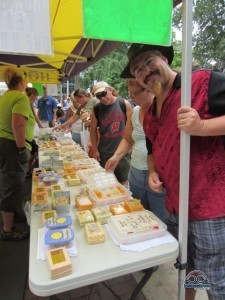
The biggest key of course is being willing to have this sort of variety in your life. You’re always going to have a different hair cut, a different brand of milk available regionally, different produce in season and wide variety of personalities attending to your needs.
If you can embrace this as a feature of the nomadic lifestyle, and appreciate the new ideas and exposure this gives you – it’ll be a lot easier.
You will have to take more responsibility for seeking out services, taking the risk of bad service and relaying your history as needed. Particularly in the case of medical, vehicle and vet services and not seeing the same caretakers all the time — you will be an unknown each time you enter a new waiting room. As not all records are as portable as they should be, you’ll have to give an accurate summation of any relevant facts about your history to ensure the highest care you can. Which means you’re going to have to keep good records.
You’ll also have to take responsibility for any follow-up care, as it’s unlikely you’ll be around in the long term. Be sure to remind your providers that anything you’re seeking service for needs to not rely on you coming back to this location for repeat appointments long term. This may require you asking for more detailed receipts and records at the end of your appointment to take with you and/or taking good notes.
If you find that constantly re-establishing your daily routines in each location is too much, try slowing down the pace of travel. Sometimes sticking around a location for a few months gives enough of a break from the constant logistical juggling to better immerse yourself.
When you can turn lack of continuity around and see it as an advantage to embrace variety — you can thrive.
<— Read Chapter 12: Healthcare and Staying Healthy on the RoadRead Chapter 14: Feeling Safe while Traveling Full Time —>
What happened to the eBook version of this series?
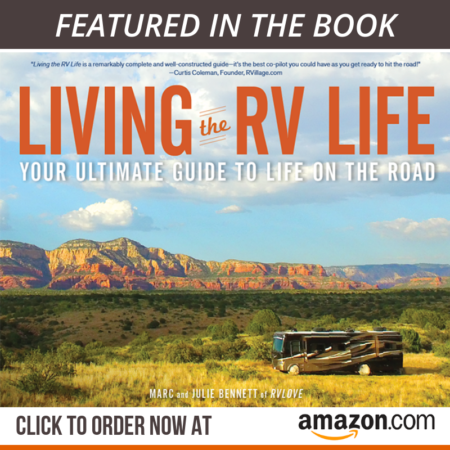
We used to offer an eBook version of this content on a ‘Pay as you Wish’ basis. That book got so out of date and we have no time to keep it updated – so we took it down.
We do our best to upkeep the segments in this blog series, but realistically can’t see republishing the book edition.
In November 2018, RV Love released their brand new (professionally published) book – Living the RV Life. It goes over a lot of similar content to this series (and more) on RVing. We highly recommend picking up a copy!
You’re of course welcome to browse the No Excuses: Go Nomadic series online for more of our tips & tricks on the logistics of nomadic travel.
If you do appreciate this series or the content on our blog, we always LOVE hearing your appreciation – leave a comment, leave a tip (link at bottom of every page) and/or share this post. Thank you!

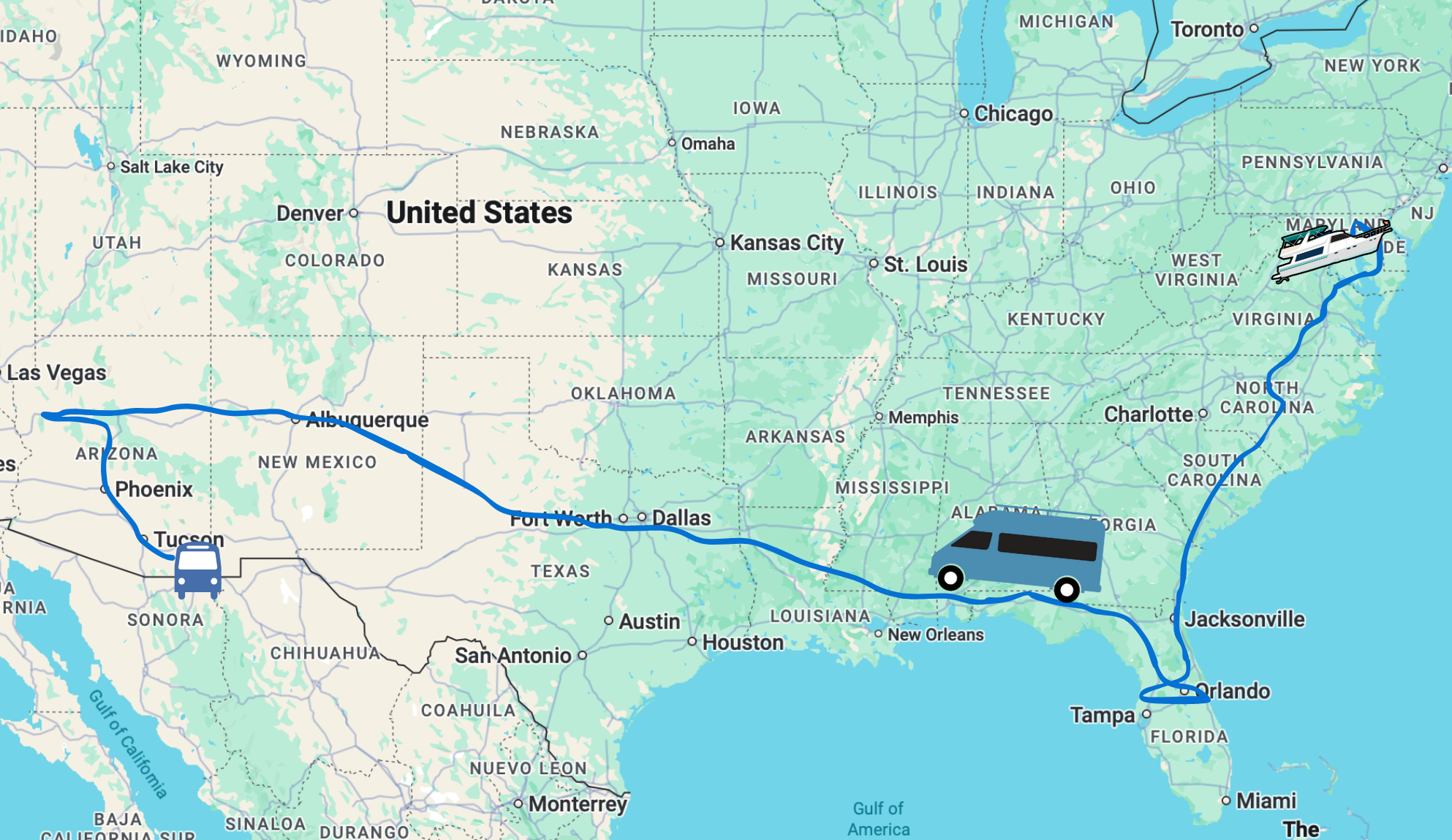
Nice article and resource to help keep spirits up during those challenging times on the road. We love researching a new area and being independent.
Brilliant article. The part about self-reliance was particularly great. I think that freaks a lot of people out because it is so easy to have things done for you these days. Leaning to not be afraid of a little leak or a burnt out bulb is liberating!
Another great article to inspire! I definitely agree on taking it easy and doing those breaks too. Our first year we travelled way too fast and almost burned out. Slowing down and taking those break days made all the difference.
Nina
I like everything you’ve said, but I especially want to second the idea of taking a bit of a break when needed. I often have a wave of fatigue about a week into a trip, when everything stops being an adventure and starts being a chore. If I’m in a place where I can’t speak the language, read the street signs, or recognize local norms, it hits harder! Staying in place while I “catch up” handles the problem nicely.
My wife and I travel full time and we have what’s called a “do nothing day”. Every couple weeks we’ll say do nothing day! and that’s what we do.
That’s an awesome sentiment! Those days are days to be treasured, indeed.
I’m not clear why a “do nothing day” is anything special. When living in a house, almost no one goes SOMEwhere EVERYday, yah? When we fulltimed, we lived almost exactly like we had in our house (and have since coming off the road a few years ago) . . . i.e. we did things on some days, but other days just puttered around. The difference could be lack of energy!
Virtual hugs,
Judie
Especially when first hitting the road, it’s really difficult to keep in mind that it’s not an extended vacation. Most folks we encounter don’t jump into full timing doing exactly the same routines they did ‘back at home’. Takes adjustment for many (us included).
Those breaks really do make all the difference! That’s one thing I really love about this lifestyle — you can change the pace whenever needed. Being nomadic doesn’t mean always being in constant motion. And I really do love getting in tune with the surroundings.